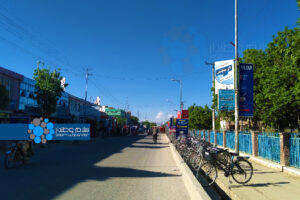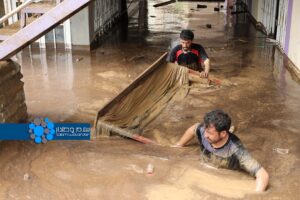LASHKARGAH (SW) – There has been an evident spike in the poppy cultivation in Helmand province also acknowledged by the Islamic Emirate officials with concerns.
Helmand is one of the provinces in the southern part of the country that makes up the bulk of agricultural and arable land, and for the first time in two decades, farmers have turned to large-scale poppy cultivation in the province this year.
Although Helmand farmers are deeply concerned about the shortage of wheat and the high price of poppy this year due to widespread poppy cultivation, this year’s drought, rampant use of chemical fertilisers and high oil prices point to their compulsions. This has led to widespread poppy cultivation.
They say that if the government and international aid agencies get their hands on chemical fertilisers, improved seeds and other agricultural necessities, they will be able to grow alternative crops on their land.
Officials in the Islamic Emirate also acknowledge that farmers in Helmand have resorted to poppy cultivation due to poverty and other constraints, but say that the alternative livelihoods program will help farmers to switch to more positive crops instead of poppy.
Zabihullah Mujahid, a spokesman for the Islamic Emirate, said he had also talked to international organizations about implementing an alternative livelihood program.
According to Helmand Agriculture Department officials, wheat has been planted on 5,000 hectares of land in the provincial capital and nine districts of the province and improved seeds and chemical fertilisers have been distributed to 4,500 farmers. But it does not say how much poppy has been planted.
It is worth mentioning that in previous years, significant cultivation of opium poppy was also taking place in Helmand, but the area under cultivation was limited due to a series of anti-poppy measures.
ENDS






